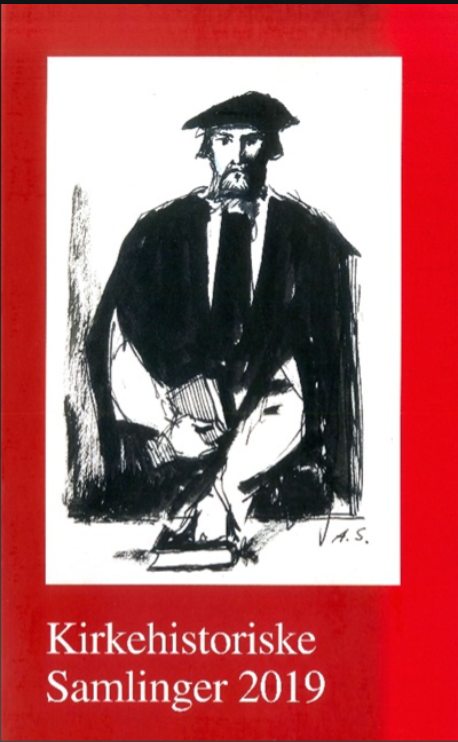Publiceret 15.12.2019
Citation/Eksport
Copyright (c) 2019 Tidsskriftet Kirkehistoriske Samlinger

Dette værk er under følgende licens Creative Commons Navngivelse – Ingen bearbejdelser (by-nd).
Resumé
Den overvejende del af reformatoren Hans Tausens bevarede skrifter er i dag tilgængelige som faksimiletryk. En række af hans tidligste reformationsskrifter samt en række småstykker fra tiden som superintendent i Ribe (fra 1541) er også tilgængelige i H.F. Rørdams Smaaskrifter af Hans Tavsen (1870). Rørdam gjorde dog enkelte undtagelser, og han optog bl.a. ikke et håndskrevet fragment om præsteembedet. Dette fragment er en del af et samlebind med Tausen-manuskripter i Karen Brahes Bibliotek. Nærværende artikels første del meddeler for første gang en transskription og en oversættelse af dette fragment. Ved at studere manuskriptpapirets vandmærker forsøger artiklen at tidsfæste fragmentet, og via en undersøgelse af den teologiske og historiske kontekst, tidsfæstes fragmentet til 1540’erne eller 1550’erne. I anden del følger en kommenteret gennemgang og en studie af fragmentets teologi om præsteembedet, hvilket fører videre til spørgsmålet om mulige inspirationer og forlæg. Tidligere forskning har påvist, at Tausen i netop denne periode benyttede sig af Calvins skrifter. Fragmentet om præsteembedet er sandsynligvis endnu et eksempel på dette. Hverken receptionshistoriens »danske Luther«, Hans Tausen, eller tidens danske teologi blev stående ved Luther alene, en humanistisk tendens gjorde sig gældende, og hos den sene Tausen viser det sig at være en tidstypisk tendens, hvori også Calvin hørte til inspiratorerne.
Summary
Hans Tausen and John Calvin. An unpublished fragment of Hans Tausen’s tract on ministry.
The article is both a study of a part of a relatively unknown handwritten manuscript as well as the first publication of this fragment. The fragment was written by the Danish reformer Hans Tausen (1494/98-1561). It is part of a treatise on the calling, education, and ordination of evangelical pastors, and a part of the Karen Brahe Collection, today situated at Roskilde Stiftsbibliotek.
The article has two parts: The first part examines the fragment itself, its paper, watermarks, handwriting etc. The study dates one of the watermarks to have been used around 1543. At this time, Hans Tausen was superintendent in the Diocese of Ribe in Southern Jutland. Furthermore, the first part of the article gives a full transcription from the Latin manuscript and a parallel Danish translation. The second part of the article examines the theology of the fragment, theological inspirations and textual dependencies. The study shows that like other Danish theologians in the middle of the 16th century, i.a. Niels Hemmingsen, Tausen might have been informed by Calvin. Tausen’s most probable inspiration being Calvin’s commentary on The Apostle Paul’s Letters to Timothy, Commentarii in utramque Pauli Epistolam ad Timotheum, first printed in 1548. Tausen may also have read Calvin’s Institutes. Earlier research (by Martin Schwarz Lausten 1987, into Tausen’s writings from his time as superintendent) show that Tausen in his treatise Judicium de excommunicatione from 1557 actually did use and even copied part of the text from the Calvin’s Institutes. The fragment on the pastoral office may date from the same period. Like the fragment, Judicium de excommunicatione deals with the office of the pastors, however, the emphasis is placed on the ecclesiastical power of excommunication.
Thus, the present article confirms the latest research in Hans Tausen. Tausen began as a humanistic city reformer in Viborg and Copenhagen. He read Luther under inspiration from Zwingli, and despite the official Danish theology becoming more specifically Lutheran-Melanchthonian after 1536/37, Tausen continued to be influenced by the humanistic reformation theology, which then included Calvin.

